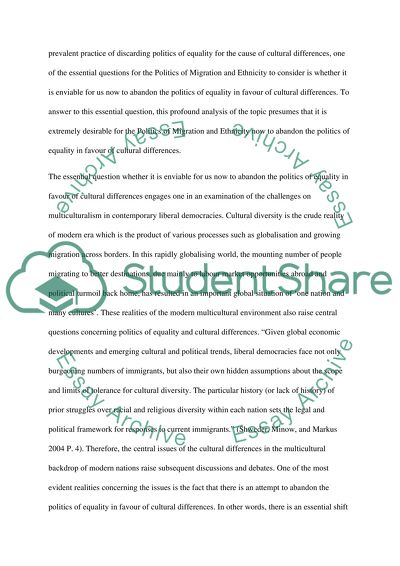Cite this document
(“Politics of Equality Essay Example | Topics and Well Written Essays - 1750 words”, n.d.)
Politics of Equality Essay Example | Topics and Well Written Essays - 1750 words. Retrieved from https://studentshare.org/politics/1527746-politics-of-equality
Politics of Equality Essay Example | Topics and Well Written Essays - 1750 words. Retrieved from https://studentshare.org/politics/1527746-politics-of-equality
(Politics of Equality Essay Example | Topics and Well Written Essays - 1750 Words)
Politics of Equality Essay Example | Topics and Well Written Essays - 1750 Words. https://studentshare.org/politics/1527746-politics-of-equality.
Politics of Equality Essay Example | Topics and Well Written Essays - 1750 Words. https://studentshare.org/politics/1527746-politics-of-equality.
“Politics of Equality Essay Example | Topics and Well Written Essays - 1750 Words”, n.d. https://studentshare.org/politics/1527746-politics-of-equality.


